
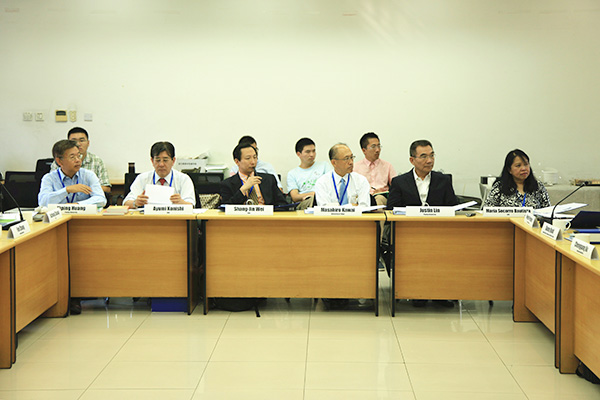
On 25th -26th August 2014, Asian Development Bank and the NSD jointly hosted Asian Development Review’s 2014 seminar: China’s future, reforms and challenges in the NSD’s Wanzhong Building. Asian Development Review is an academic journal sponsored by the Asian Development Bank. This seminar aims to find the outstanding study papers of China, and provide suggestions to improve those papers through discussion. The former World Bank Senior Vice President and Chief Economist, Standing Committee Member of the CPPCC National Committee, Vice-chairman of the National Federation of Industry and Commerce, State Council Counselor , Honorary President of NSD Lin Yifu; The Asian Development Bank President and CEO Masahiro Kawai; The Asian Development Bank's Chief Economist Wei Shangjin; The Asian Development Bank of East Asia Bureau Chief Ayumi Konishi; Harvard University Professor Dwight Perkins; London School of Economics and Political Science Professor Danny Quah; Vice President of NSD Huang Yiping; Hongkong University Professor Xu Chenggang; Deputy Director of the Department of Economics of Fudan University Fengjin; Academy of Global Macroeconomic Research Director Zhangbin are all present at the seminar.
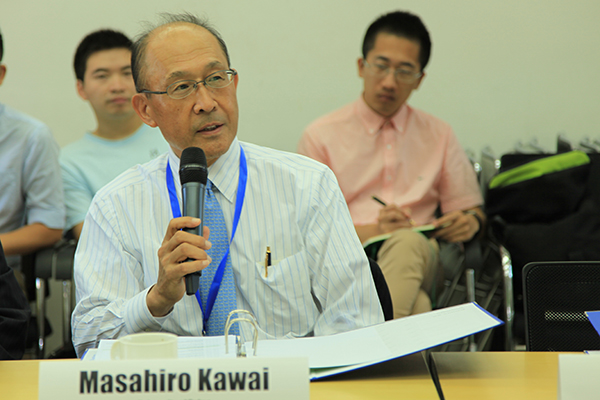
The Asian Development Bank of East Asia Bureau Chief Ayumi Konishi
In the morning of 25th August, Masahiro Kawai on behalf of the Asian Development Bank and Asian Development Review delivered an opening speech for this seminar. He praised the scholars for making an important contribution to study of Asia, especially the development of China, and as the Chief Editor of Asian Development Review, he also invited all of the scholars in this seminar to contribute article to it. Ayumi Konishi and Professor Wei Shangjin pointed out that following China’s economic growth and deepening reforms, the future, reform and challenge of China have gained the attention. The study of these issues will be the focus of academic circles for a long time to come.
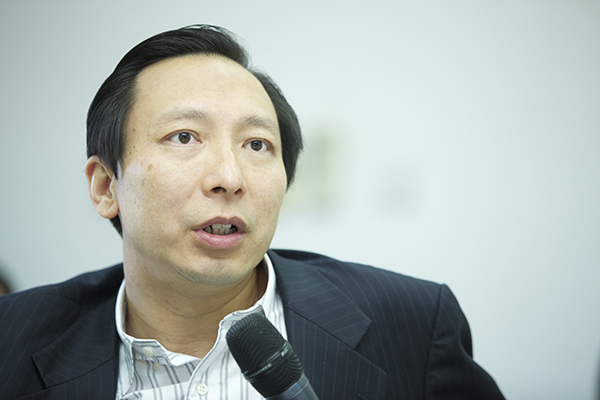
The Asian Development Bank's Chief Economist Wei Shangjin
The first speaker in morning session was Harvard University Professor Dwight Perkins. He thinks that as supply and demand are squeezed, slowing China economic growth is an inevitable phenomenon, and will continue over the next decade. The only way to sustain high speed economic growth is finding a new area in addition to transportation, real estate and other traditional investment projects. Even if the government makes the right policies, China cannot copy the miraculous growth of the past 30 years.
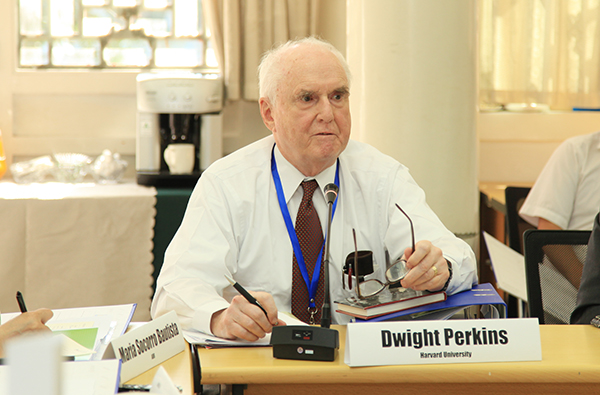
Harvard University Professor Dwight Perkins
In the next speech by Honorary President of the NSD, Justin Lin Yifu, he thinks that China has the potential to grow at 8% for the next 20 years and China’s current economic slowdown is the main reason of the global economic downturn. However, growth potential will ultimately depend on many factors, such as social and political stability, and the ability to carry out the comparative advantage development strategy.
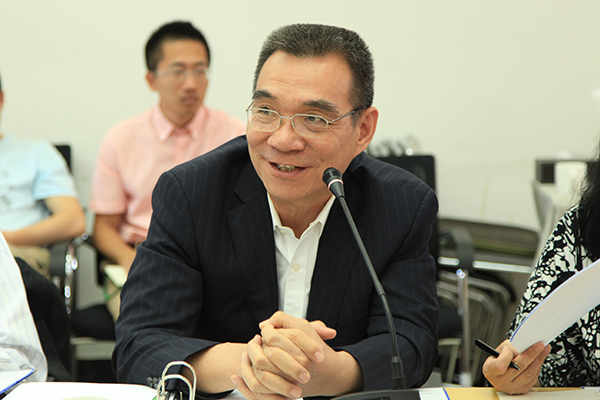
Honorary President of NSD Lin Yifu
London School of Economics and Political Science Professor Danny Quah made the last speech of this morning on the “middle-income trap”. He compared the post-World War II on the economy almost in the same starting line of the development path of 101 countries and regions. He believes that the presence of the Lewis turning point, difficulty to technology-driven economic transformation, the drying up of the export market and government management corruption and lag are likely to push developing countries into the middle-income trap.
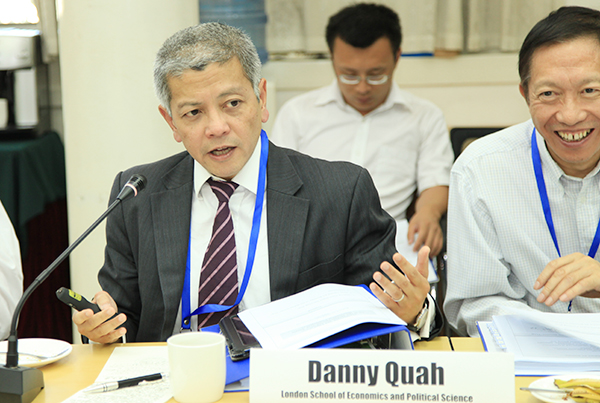
London School of Economics and Political Science Professor Danny Quah
The first speaker in afternoon session was Hong Kong University Professor Xu Chenggang. He emphasized that China’s GDP is the second largest in the world, but its development level is only on a par with Peru and other similar countries. The main reason lies in the system; the secret of China’s successful reforms in the past is the reform of system, and the biggest obstacles in future reforms will also be rooted in the system.
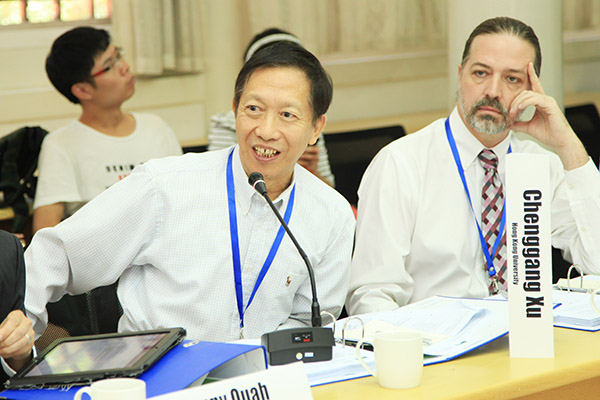
Hongkong University Professor Xu Chenggang
Assistant Professor Di Guo also from Hong Kong University found that publicly listed companies with Venture Capital backing are superior to no VC-backing in a business background of the same in financing, market recognition and the growth rate in scale after IPO, and supported by experienced VC enterprises perform better. Even after the venture capital exits, portfolio companies still keep the advantage with regards to corporate governance.
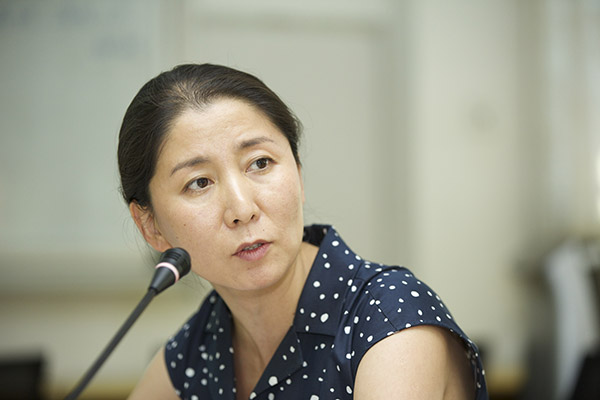
Assistant Professor Di Guo from Hongkong University
Professor Zhangbin from the Academy of Social Sciences mentioned in his speech that trade costs and rising labor costs are two dominant factors to the decline in export growth. If maintaining the status quo, it is highly likely that China export volume will remain stagnant or even worse. The government should implement structural adjustment policies as soon as possible, and change of the target market and main products in export.
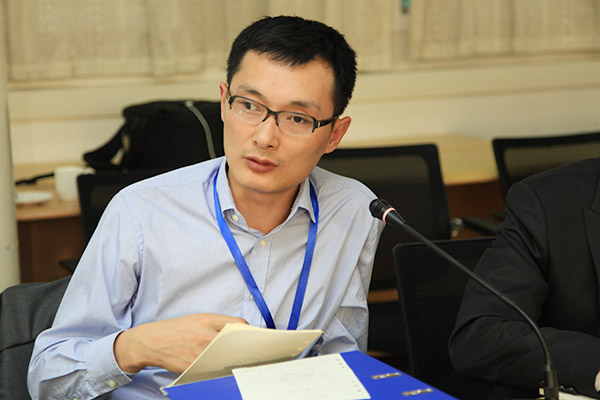
Professor Zhangbin from Academy of Social Sciences
On the morning of the 26th August, Asian Development Bank President and CEO Masahiro Kawai re-studied the “Impossible triangle” in international finance. In his opinion, with the deepening of China financial market exposure, Chinese government’s control of the RMB exchange rate has not relaxed meaning that China monetary policy independence is being eroded. If it wants to restore the independence of monetary policy, not only to relax restrictions on RMB exchange rate, but also to strengthen the transmission mechanism of monetary policy, implementing, for example, interest rate liberalization, the development of corporate bonds and municipal bond etc.
NSD Vice President Professor Huang Yiping gave his opinion on foreign entry making influence on the efficiency of industrial enterprises in China. In his point of view, foreign entry can enhance the competition of the banking industry, make the financing of the economy as a whole more smoothly, it can also improve the efficiency of industrial enterprises. Nevertheless, allowing foreign entry is not equal to the capital market fully open; in order to improve the efficiency of the past protected industrial sectors can only be done by further opening.
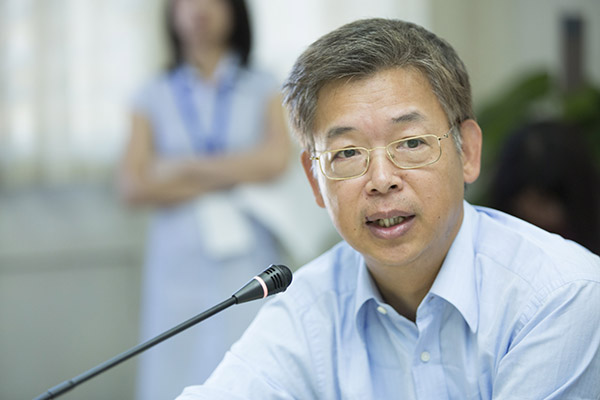
Vice President of NSD Huang Yiping
Assistant Professor Tao Kunyu from the Central University of Finance and Economics introduced China local government financing risk. She said, with the diversification of local government financing tools, the local government in the scale, structure and solvency risk are increasing. If the risk is not in effective supervision and control, there will have a huge impact on China’s financial market.
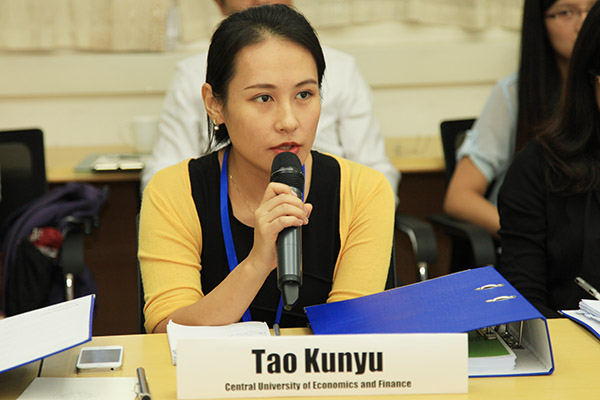
Assistant Professor Tao Kunyu from Central University of Finance and Economics
Professor Fengjin from Fudan University as the first speaker in the afternoon believes that the aging population increases Chinese health care spending, at present the number of people participating in all kinds of medical insurance is proliferating, in the future it can form a lot of pressure.
NSD Assistant Professor Zhang Dandan studied the education quality of children of rural migrants and its unfair influence on education between city and countryside. She thinks that due to the poor quality of education, children of rural migrants going to school in cities can in fact expand urban and rural education gap. For this group of children, going home to accept education may be a better choice.
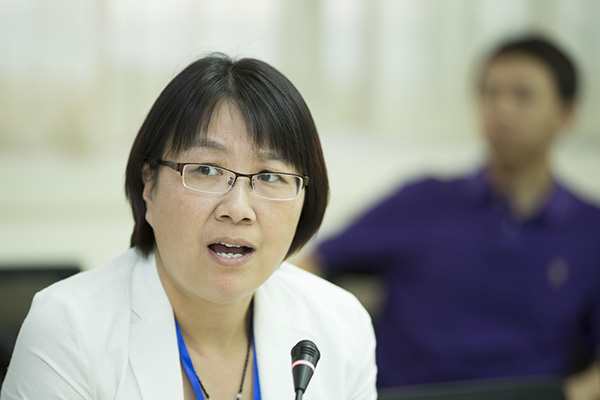
Professor Fengjin from Fudan University
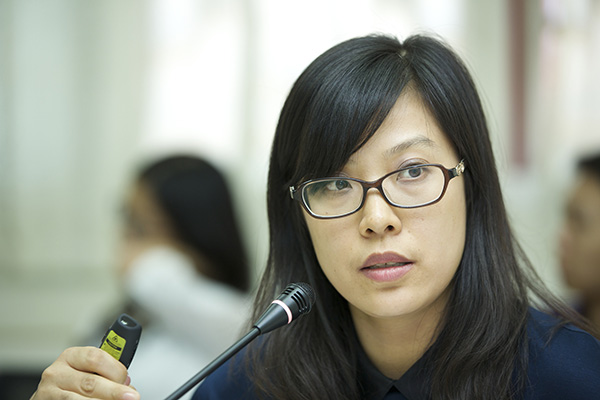
NSD Assistant Professor Zhang Dandan
Asian Development Bank economist Juzhong Zhuang expressed his view on China’s income inequality problem. He thinks that the rising technology premium, labor income share reduction and regional inequality (especially in urban and rural areas), as well as the expansion of wealth inequality are the main driving factors of income inequality aggravation. It is still too early to say whether China income inequality has peaked, the income gap may also further expanded.
Lastly, Masahiro Kawai made a conclusion for this seminar. In the warm applause of participants, the meeting was concluded.
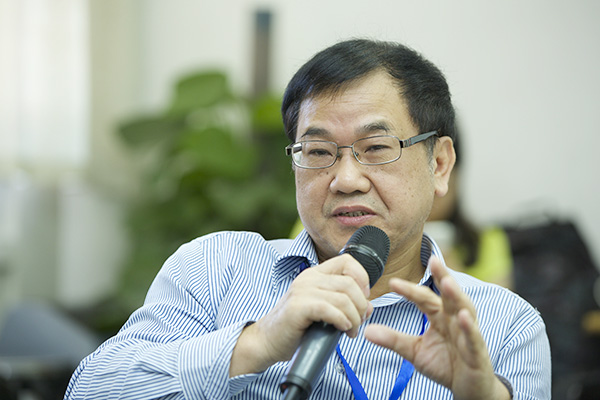
Asian Development Bank economist Juzhong Zhuang
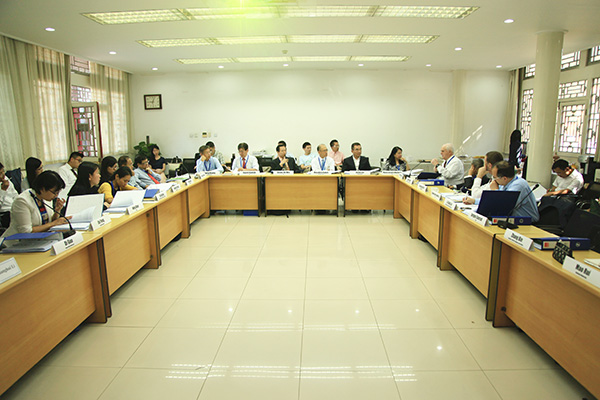
A panoramic view of the seminar